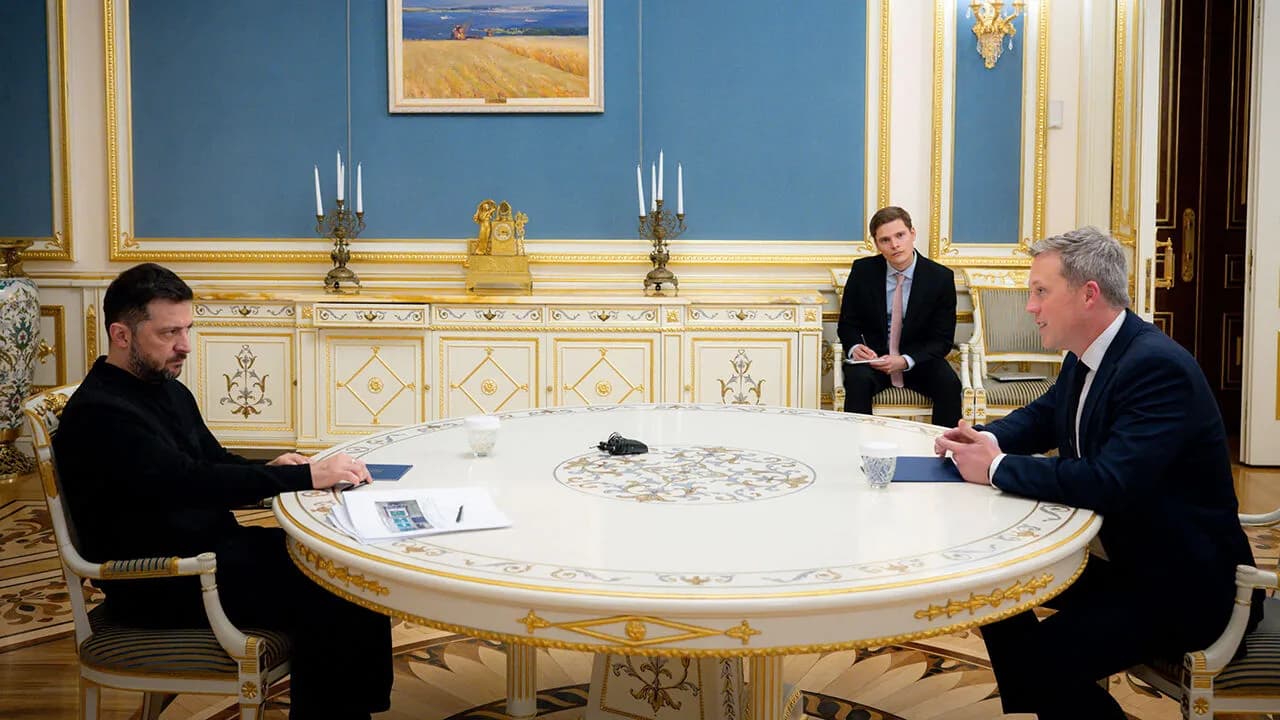We're loading the full news article for you. This includes the article content, images, author information, and related articles.
A leaked 28-point US proposal to end the Ukraine war receives cautious approval from Moscow, placing Ukrainian President Zelenskyy in a difficult position. For Kenya, the outcome could influence global grain and fuel prices, which have sharply risen since the conflict began.

A leaked 28-point peace proposal, reportedly drafted by United States and Russian envoys, has received a guarded endorsement from Russian President Vladimir Putin, who suggested it could form the basis of a final settlement. The plan, presented to Ukrainian President Volodymyr Zelenskyy by a Pentagon delegation in Kyiv on Thursday, November 21, 2025, proposes significant concessions from Ukraine, including ceding territory and abandoning its ambitions to join NATO.
The proposal surfaces nearly four years into the full-scale conflict, a period that has seen severe disruption to global supply chains for essential commodities like wheat, fertilizer, and fuel, directly impacting the cost of living in Kenya and across East Africa. Kenya, which imports significant amounts of wheat from both Russia and Ukraine, has experienced sharp increases in food and fuel prices since the war's outset.
According to multiple international media reports, the plan was formulated after discussions between U.S. President Donald Trump's special envoy, Steve Witkoff, and a key advisor to President Putin, Kirill Dmitriev. Key points of the proposal reportedly include:
The plan also reportedly includes provisions for the lifting of sanctions against Russia, its reintegration into the G8, and the use of frozen Russian assets for Ukraine's reconstruction.
Speaking at a meeting of the Russian Security Council on Friday, November 22, 2025, President Putin described the proposal as a "modernised" version of a plan discussed at a U.S.-Russia summit in Alaska in August 2025. "I believe that it can be used as the basis for a final peace settlement," Putin stated, while noting the text had not been discussed in detail with Moscow. He attributed this to Washington's inability to secure Kyiv's consent, accusing Ukraine and its European allies of living in "illusions" of defeating Russia on the battlefield.
In Kyiv, the proposal has been met with significant apprehension. President Zelenskyy addressed the nation on Friday, stating that Ukraine faces "one of the most difficult moments in our history." He warned of a "very difficult choice, either losing its dignity or the risk of losing a key partner" in the United States. While not rejecting the plan outright, Zelenskyy emphasized that any agreement must respect Ukraine's sovereignty and confirmed he would work constructively with the U.S. and European partners. Some Ukrainian officials have dismissed the plan as "absurd" and a potential Russian provocation.
The ongoing war has had a tangible economic impact on Kenya. The disruption to grain exports from Ukraine and Russia, which together account for a large portion of Kenya's wheat imports, has exacerbated food insecurity and inflation. Similarly, global spikes in fertilizer and fuel prices, driven by the conflict and subsequent sanctions on Russia, have increased costs for farmers and consumers, contributing to a higher cost of living.
A potential peace settlement, even one that is contentious, could lead to a stabilization of these key commodity markets. A resolution that lifts sanctions and reopens the Black Sea for trade could lower the price of imports for Kenya, potentially easing economic pressure on households. However, the geopolitical ramifications of a deal seen as rewarding aggression are significant and could set a precedent for international conflict resolution. The stability of any such peace remains a critical question for global security and, by extension, the global economic conditions that affect Kenya.
European leaders, who were reportedly not consulted on the draft, have insisted that Ukraine must be central to any negotiations and have scrambled to formulate a response. The coming days are expected to see intense diplomatic activity as Kyiv weighs its options under immense pressure. FURTHER INVESTIGATION REQUIRED.
Keep the conversation in one place—threads here stay linked to the story and in the forums.
Sign in to start a discussion
Start a conversation about this story and keep it linked here.
Other hot threads
E-sports and Gaming Community in Kenya
Active 9 months ago
The Role of Technology in Modern Agriculture (AgriTech)
Active 9 months ago
Popular Recreational Activities Across Counties
Active 9 months ago
Investing in Youth Sports Development Programs
Active 9 months ago